Housekeeping: I’m going to start including a very brief description of the book with each review. I hesitated to do this at first because I hate reading reviews that tell me about the book. I’m looking for the reviewer’s opinion; if I want to know what the book contains, I’ll read the back cover copy (BCC) or, even better, the book! Anyway, I decided to include a short description so as to give you some context for my review. Where the BCC is good, I’ll use that, but if I find it to be misleading, I’ll write a couple sentences myself. 🙂
From the back cover copy: In a country on the brink of civil war, Nadia and Saeed meet. They embark on a furtive love affair, and are soon cloistered in a premature intimacy by the unrest roiling their city. When the conflict explodes, they begin to hear whispers about doors that can whisk people far away. As the violence escalates, Nadia and Saeed decide that they no longer have a choice. Leaving their homeland and their old lives behind, they find a door and step through. Exit West follows them as they emerge into an alien and uncertain future, struggling to hold on to each other, to their past, to the very sense of who they are.
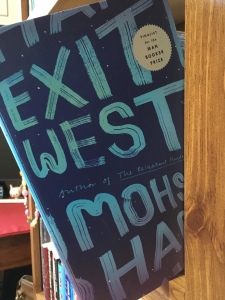 TL;DR, spoiler-free review: Heartbreaking, magical, and realistic. Mohsin Hamid writes in a lyrical, meandering sort of way that never wastes a word. You’ll read it quickly, and read it you absolutely should.
TL;DR, spoiler-free review: Heartbreaking, magical, and realistic. Mohsin Hamid writes in a lyrical, meandering sort of way that never wastes a word. You’ll read it quickly, and read it you absolutely should.
You’re-verbose-and-I-like-it review: Exit West is full of the kind of tension that makes you desperate to turn pages. It’s not overbearing, just a sort of uncomfortable-ness of which you aren’t fully aware. It’s similar to when you hear a weird noise in your home and listen really hard but don’t notice you’re holding your breath until you inhale. Readers are focused on the budding relationship between Nadia and Saeed but they are never allowed to forget about the developing military conflict. Readers are intent on Nadia and Saeed escaping their war-torn country, but reminded that these two people are held together by circumstance as much as their feelings for each other. It was this underlying tension that drove me through the book so quickly, not necessarily demanding a happy ending, but hoping that these characters can, at last, find comfort and peace.
As I’ve said already, Hamid’s writing style is meandering but not verbose. Consider the following, which is actually only the second half of the sentence:
…in a gesture so beautiful that Saeed was filled with love, and reminded of his parents, for whom he suddenly felt such gratitude, and a desire for peace, that peace should come for them all, for everyone, for everything, for we are so fragile, and so beautiful, and surely conflicts could be healed if I others had experiences like this, and then he regarded Nadia and saw that she was regarding him and her eyes were like worlds.
Even when repetitive, there is no instance where paring down the word count is desirable. These long sentences work really well to fold the reader into the emotions of the characters.
When I first read the BCC for Exit West, I thought the doors it referred to were metaphorical; I still imagined their emigration process would be practical (ie. a ship if they escaped by sea, or on foot if they escaped over land). You quickly learn that these are random, ordinary doorways that people walk through and end up somewhere else on Earth. I found it interesting that Hamid did not include the actual act of emigrating. This forces the reader to focus exclusively on what happens when the travelers arrive. Leaving is difficult, travelling can be perilous, but, for Nadia and Saeed, what is important is what they must do next to be safe.
Exit West was not at all what I was expecting, in style and plot, in pacing and character development, and in how it made me feel. It’s a quick read but it’s the sort of book that stays with you long after you finish the last page.

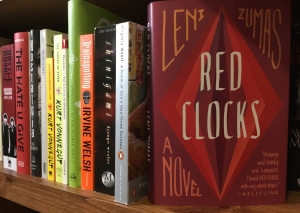 TL;DR, spoiler-free review: The premise of
TL;DR, spoiler-free review: The premise of 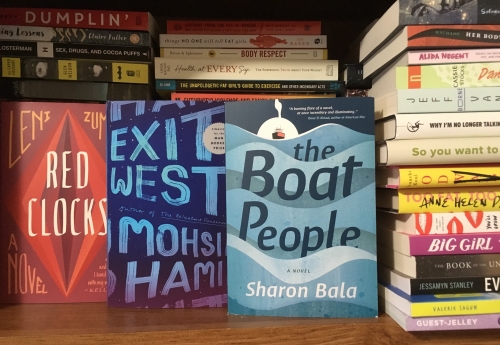
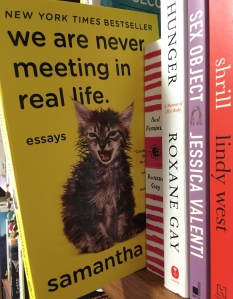 TL;DR, spoiler-free review: I laughed so often that I was compelled to read snippets to my boyfriend, who does NOT share my sense of humour. Read this book, but not on public transit if you don’t care to snicker in front of strangers.
TL;DR, spoiler-free review: I laughed so often that I was compelled to read snippets to my boyfriend, who does NOT share my sense of humour. Read this book, but not on public transit if you don’t care to snicker in front of strangers.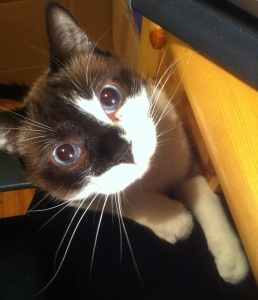 at will totally make sense in a minute: I freaking love my cat. His name is Phoenix, he is the most beautiful boy in the world, and yes, I will take you down with extreme prejudice if you dare defy that statement. He has blue eyes, and he’s the cuddliest, friendliest, most loving little creature I’ve ever been so lucky to have to clean up shit after on a daily basis. So it was with genuine mirth that I read about Helen, a feline that lives with Samantha. I don’t say “Irby’s cat” because she makes it abundantly clear that she hates the furry beast from minute one. She ends the chapter on Helen with a sort of online ad to get rid of her and that paragraph is so funny that I’ve had to flip back and read it to the people who have the audacity to speak to me when I have a book in my hands. Irby personifies her cat the same way I do, giving a snarky and judgmental voice to Helen that makes me glad we will never know what our pets actually think about us.
at will totally make sense in a minute: I freaking love my cat. His name is Phoenix, he is the most beautiful boy in the world, and yes, I will take you down with extreme prejudice if you dare defy that statement. He has blue eyes, and he’s the cuddliest, friendliest, most loving little creature I’ve ever been so lucky to have to clean up shit after on a daily basis. So it was with genuine mirth that I read about Helen, a feline that lives with Samantha. I don’t say “Irby’s cat” because she makes it abundantly clear that she hates the furry beast from minute one. She ends the chapter on Helen with a sort of online ad to get rid of her and that paragraph is so funny that I’ve had to flip back and read it to the people who have the audacity to speak to me when I have a book in my hands. Irby personifies her cat the same way I do, giving a snarky and judgmental voice to Helen that makes me glad we will never know what our pets actually think about us.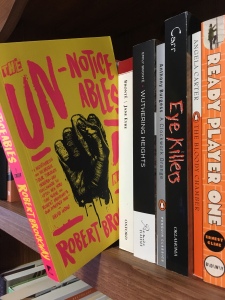 TL;DR, spoiler-free review: an intriguing and well-executed premise,
TL;DR, spoiler-free review: an intriguing and well-executed premise, 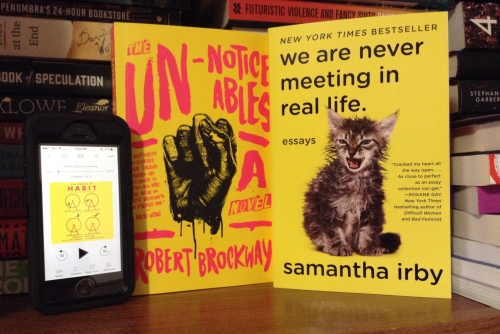
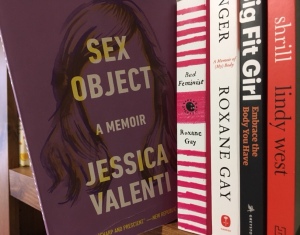
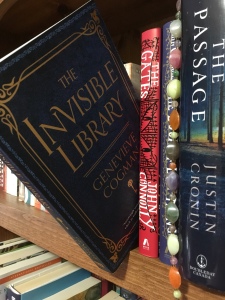 TL;DR, spoiler-free review: an uncomfortable mess of literary tropes and clichés that aren’t subverted in any interesting or unique ways. Like a bad soap opera, it’s unnecessarily complicated and silly.
TL;DR, spoiler-free review: an uncomfortable mess of literary tropes and clichés that aren’t subverted in any interesting or unique ways. Like a bad soap opera, it’s unnecessarily complicated and silly.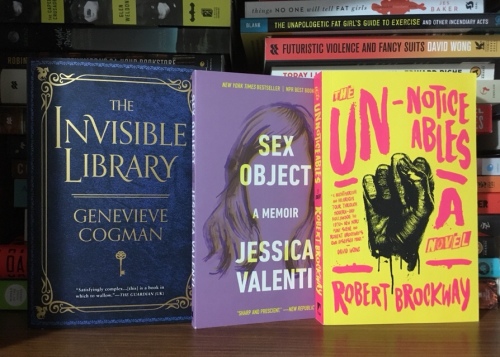
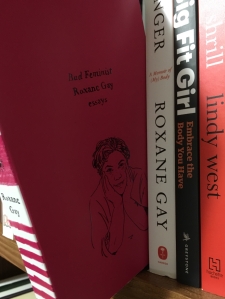 TL;DR spoiler-free review: a collection of essays analyzing (pop) culture and what it means to be a feminist. Roxane Gay is insightful, funny, and brutally honest. Read also:
TL;DR spoiler-free review: a collection of essays analyzing (pop) culture and what it means to be a feminist. Roxane Gay is insightful, funny, and brutally honest. Read also: